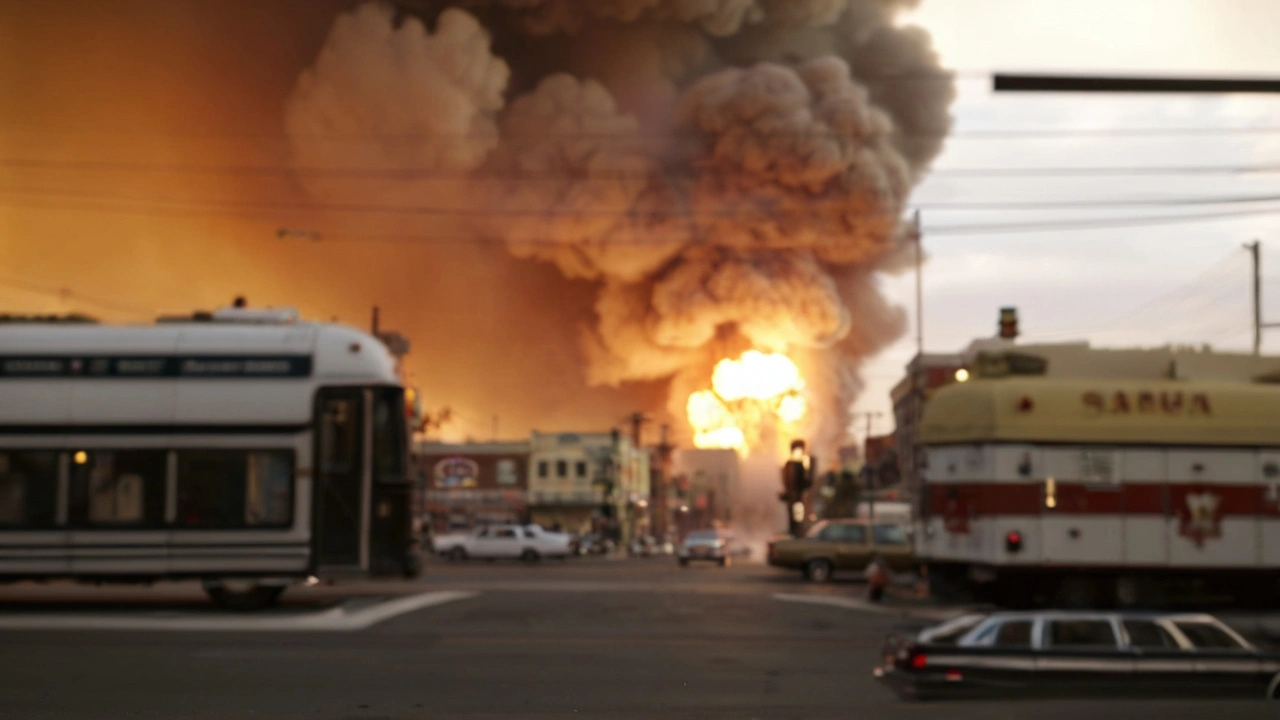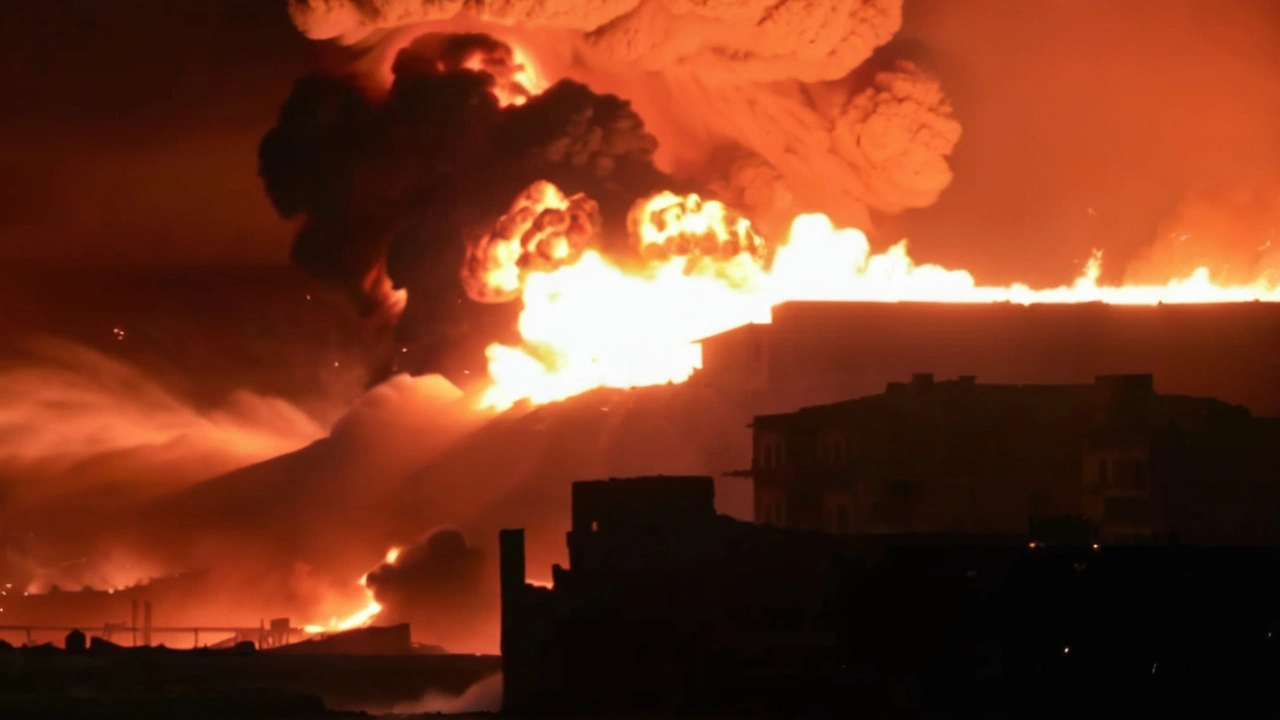Introduction
The port city of Hodeida in Yemen has recently become the epicenter of a significant geopolitical conflict. The Huthi rebels, who have long been a major faction in Yemen's ongoing civil war, have promised a 'huge' retaliation against Israel. This comes in response to an airstrike by Israel that caused substantial damage and loss of life in Hodeida.
The Israeli Airstrike
Details of the Attack
The Israeli airstrike, noted as the first of its kind claimed by Israel in Yemen, struck Hodeida, killing six individuals and injuring 83 others. The airstrike left a major portion of the port city in shambles, especially its critical infrastructure. The attack occurred just a day after the Huthis conducted their first ever fatal assault on Israeli soil, specifically in Tel Aviv. This back-and-forth of attacks marks a serious escalation in the conflict, one that could have dire humanitarian consequences for the already suffering Yemeni population.
Casualties and Damage
The strike led to a devastating toll, not just in human lives, but also in the vital resources of the port city. Three individuals remain unaccounted for, which adds to the community's anxiety over the lingering threats and continued instability. The port’s critical infrastructure, which plays a key role as a conduit for fuel and humanitarian aid, was significantly damaged. This includes fuel storage tanks and a power plant, which remains ablaze days after the attack.
Dramatic Repercussions
Humanitarian Concerns
The port of Hodeida is essential for Yemen, serving as a major entry point for both fuel and much-needed humanitarian aid. With its facilities severely damaged, the already tragic humanitarian situation in Yemen could deteriorate further. Experts are voicing their concerns about how this attack could exacerbate the suffering of ordinary Yemenis, who are already enduring one of the world's most dire humanitarian crises. Access to necessities such as food, water, and medical supplies could become even more limited as a result of the strike.
Regional Political Tensions
The Israeli attack has also triggered a wave of political responses. Abdul Malik al-Huthi, the leader of the rebel faction, stated that these strikes mark a new phase in their conflict with Israel. He declared that escalating retaliation and increasingly intense operations targeting Israeli interests are to be expected. Huthi military spokesperson Yahya Saree further emphasized that their response to what they termed Israeli aggression would be substantial.
Broader Implications
Escalation and Fear of Wider Conflict
This conflict has wider implications beyond Yemen and Israel. The airstrike and the resulting promise of retaliation are likely to increase tensions in the already fragile Middle Eastern region. Saudi Arabia’s foreign ministry condemned the strike and argued that it aggravates the current tension and undermines efforts to end the ongoing war in Gaza. This indicates a potential for a larger regional conflict if these actions trigger further retaliatory strikes and counter-strikes.
Impact on Efforts to Secure Peace
The timing of these attacks is particularly concerning. Any hope for negotiated settlements or peace processes in the region could be jeopardized. The spike in direct confrontations between the Huthis and Israel brings a new dynamic to the long-standing conflicts in the region. It raises questions about the future of peace talks and efforts to deescalate the situation in Gaza, Syria, and other concentrated conflict zones.
Future Scenarios
Potential for Retaliation
Based on the promises made by the Huthi rebels, it is highly likely that there will be further attacks aimed at Israeli targets. This could lead to an ongoing cycle of violence that might draw in other regional players. The fragility of regional alliances could be tested, and international entities might also be compelled to take sides or engage in peacekeeping efforts to prevent the escalation of violence into a broader conflict.
International Response
The international community’s reaction to these events will be critical. On one hand, there could be calls for immediate ceasefires and diplomatic interventions to prevent a full-scale war. On the other, geopolitical interests might shape the way countries respond to these developments, influencing international relations on a broader scale.

Conclusion
The recent developments in Yemen and the consequential conflict between the Huthi rebels and Israel mark a troubling escalation with far-reaching humanitarian and geopolitical implications. The promise of further retaliation adds a layer of urgency to calls for international intervention to prevent additional suffering and instability. As the situation unfolds, the people of Yemen are left facing uncertain and potentially devastating futures, highlighting the urgent need for comprehensive solutions to address both the immediate and long-term impacts of this conflict.






Write a comment